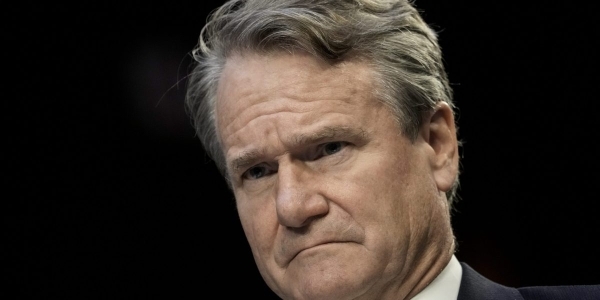
More than a decade ago, Bank of America CEO Brian Moynihan was one of a handful of bankers to write to Congress warning lawmakers how terrible it would be to default on the country’s debt. Twelve years on and Moynihan has said that both he and corporate leaders across America and around the world must be prepared for the real possibility that it could finally happen.
Speaking on CNN This Morning, Moynihan said that although he is hoping his long-held fears won’t come true, hope simply “isn’t a strategy.”
Moynihan’s words come following weeks of congressional bickering after the U.S. government hit its debt ceiling of $31.4 trillion on Jan. 19. Typically politicians will seek to raise this ceiling to alleviate the risk of defaulting on loans. However, with the Republicans recently taking control of the House of Representatives—and demanding spending cuts—it seems that the process will take longer than usual and could lead to an intentional default.
Treasury Secretary Janet Yellen has warned of the “self-inflicted calamity” a default would inflict on the global economy, and of the dangers of linking an increase in the debt ceiling to cuts.
Other economists believe the debt ceiling is a “farce” that has little teeth to actually curb spending. Ray Dalio, billionaire investor and founder of the investment management giant Bridgewater Associates, wrote on LinkedIn that the cap is “like a bunch of alcoholics who write laws to enforce drinking limits, and when a limit is reached, they do a farcical negotiation that temporarily eliminates the limit which allows them to have the next drinking binge until they reach the next limit at which time they go through the next farcical negotiation and continue to binge.”
When asked whether or not the limit is “worth it,” Bank of America’s Moynihan voiced his belief in continuing to work within the parameters of the Constitution. “It’s a political process and there’s got to be an argument about how we make sure we live within our means as a country, and that argument’s going to go on,” he said. “Congress has the purse strings. I would be careful about trying to restructure the U.S. Constitution. It’s been around for 250 years almost, I think we should leave it alone and make sure it operates correctly.”
The banking boss wasn’t critical of the decisions that led to the ceiling being reached, adding, “We had to put on a lot of debt over the past couple of years to overcome the pandemic drag on the economy. At some point we’ve got to figure out how that works in the future, but right now we’ve got to get past the issues of just getting through the technical structure.”
Rosier outlook
As the debt ceiling bickering continues in Congress, the current economic outlook appears rosier than expected by several key economic measures. Despite ongoing doom and gloom predictions from investment banks, economists, and billionaire investors, labor market data from the Bureau of Labor Statistics released this month showed the unemployment rate fell to a 53-year low of 3.4%. A sure sign, Yellen added, that the economy is “strong and resilient.”
Moynihan was also buoyed by the news. Employment is one of the “challenges for the Fed,” he said, but the fact that unemployment had remained low despite the central bank raising rates was a sign the policy has had its desired effects without being detrimental to the economy.
And although the CEO is still predicting a “mild recession,” he added that the prospect of one is growing more distant. He was also sanguine about trade tensions with China, saying that the fear of a negative impact from a falling out between China and the U.S. would be key to getting people “back in a room” to ease tensions through negotiations.
